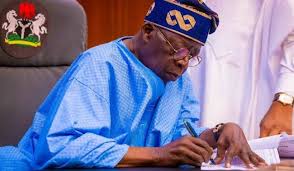President Bola Tinubu’s recent $7.8 billion and €100 million external loan approval has drawn significant attention, especially when compared to the borrowing patterns of his predecessors. During Muhammadu Buhari’s administration, Nigeria’s external debt rose sharply, with a 291% increase in external debt from $10.32 billion in 2015 to $33.62 billion by 2021. This was accompanied by a domestic debt increase of 86%. Meanwhile, Goodluck Jonathan’s administration saw a 58% rise in total federal government debt, driven by increases in both local and foreign borrowing. The loan is expected to come from a mix of international creditors, including multilateral organizations and bilateral lenders. Some sources suggest that a significant portion of the loan may be sourced from international institutions such as the World Bank, the African Development Bank (AfDB), and possibly bilateral loans from countries with strong ties to Nigeria.
Nigeria’s current budget deficit could have been avoided with better economic diversification and improved revenue generation strategies. The country’s heavy reliance on oil revenues, which are vulnerable to market fluctuations, contributed significantly to the deficit. The removal of fuel subsidies without a clear transition plan also worsened inflation and economic hardship, slowing cash flow. To avoid such deficits, Nigeria needed stronger fiscal policies, such as tax reforms, diversification into sectors like agriculture and technology, and improved debt management to reduce the pressure on its national budget.
The Presidents Failed Promises
Tinubu plans to use the borrowed funds for infrastructure, agriculture, education, and water supply projects. His repayment strategy hinges on boosting revenue through fiscal reforms, removing fuel subsidies, and increasing tax efficiency. However, critics have raised concerns over Nigeria’s debt servicing ratio, as nearly all government revenues are directed toward debt repayment. Economic experts stress the need for asset-backed borrowing and sustainable debt management to avoid financial strain.

Wasteful Government Spending
Wasteful government expenditures in Nigeria have long been a source of contention, particularly in the context of the National Assembly, including the Senate. For instance, lawmakers’ inflated salaries and allowances, which are among the highest in the world, have sparked public outrage. According to reports, in 2022, each senator received monthly allowances amounting to millions of naira, in addition to their base salaries and perks, including cars, furniture, and housing allowances. These expenditures have been criticized as excessive given the country’s financial struggles, especially considering the nation’s deficit and growing debt.
Furthermore, the cost of maintaining the National Assembly is staggering. In 2022, the National Assembly budget was around ₦130 billion, which covers expenses like high travel allowances, per diems, and numerous overseas trips. Despite ongoing poverty in the country, these expenses continue unabated.
This wasteful spending may be one of the reasons the Senate supported President Tinubu’s request for a massive loan, as they may view increased borrowing as a solution to the short-term financial needs that come with managing these lavish expenditures. The justification for such borrowing often centers around the need for development and infrastructure improvement, though critics argue that proper fiscal management, including reducing wasteful spending, would better address the nation’s fiscal challenges.








